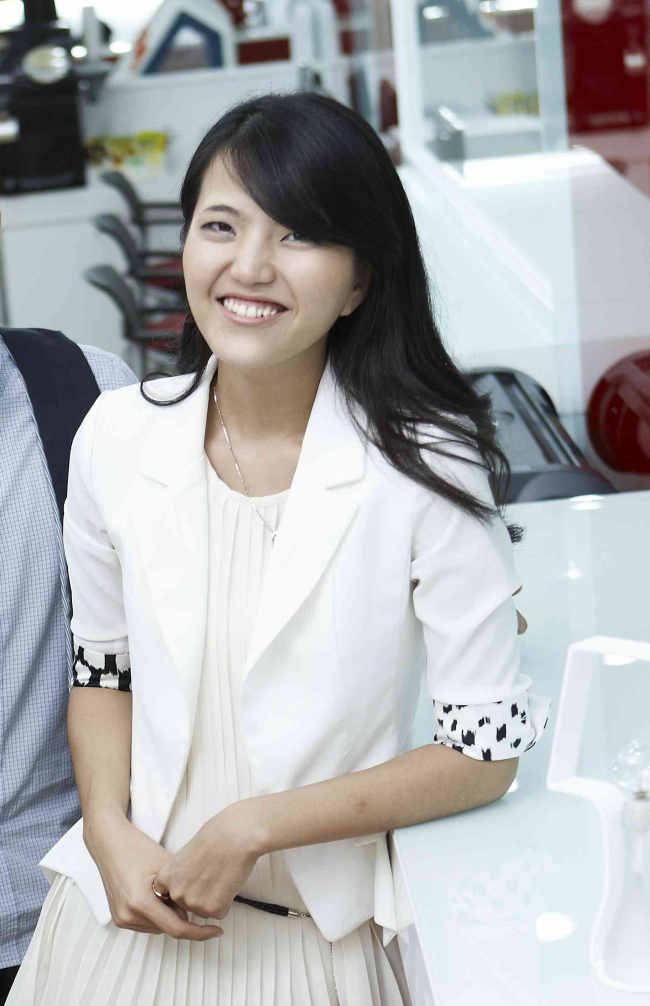It all started with one simple belief: Design can change the world.
In 2006, a small group of industrial designers in Incheon launched a green design campaign presenting rubbish turned into art ― from chandeliers made of empty bottles to an umbrella stand made out of stairs.
Giving new life to landfill-bound items, they slowly inspired fellow artists and the general public to join the endeavor for an eco-conscious life.
“We started to redesign recyclable materials to brand new artwork or design products, believing that even one design, one designer could make a difference in our lives and save the earth,” Wang Jung-ah, design director at Manontanto, said in an interview with The Korea Herald.
 |
Wang Jung-ah, design director at Manontanto |
Manontanto is the country’s first recycled art design team.
“We hope to offer fun but artistic ways to practice an eco-lifestyle by redesigning trash, recyclable materials into pieces of art, design products,” she said.
The campaign started at a flea market in Hongdae, Seoul, where the design team showcased samples of accessories and stationery made of broken computer keyboards, teaspoons and film canisters.
The outdoor event turned out to be a success.
“We had quite enthusiastic responses,” she said. “Expectations were high for well-made recycled artwork and design. People had interesting and inspiring ideas for green products. We felt an urge to satisfy the growing need.”
Although its enterprise was far from making profits, designers continued to experiment with the recyclable stuff.
In its “Relight” project in 2009, the team transformed junk items from wine bottles to shuttle cocks used in badminton into modern art pieces.
“We wanted to break the existing prejudice that recyclable items are too ugly to be kept and that they must be replaced with new products immediately. We wanted to let people know that design could make them beautiful and worthy of appreciation,” she said.
For the last seven years, the number of designers joining the movement has increased and the public started to view recycled art as a hot contemporary genre. But there should be more who put eco-friendly ideas and philosophy into their works, making a small but profound change in today’s culture of mass production, Wang said.
“Designers should ask themselves how their design works are affecting the environment and the people’s lives. It is our mission,” she said.
By Cho Chung-un (
christory@heraldcorp.com)




![[Herald Interview] 'Trump will use tariffs as first line of defense for American manufacturing'](http://res.heraldm.com/phpwas/restmb_idxmake.php?idx=644&simg=/content/image/2024/11/26/20241126050017_0.jpg)


![[Health and care] Getting cancer young: Why cancer isn’t just an older person’s battle](http://res.heraldm.com/phpwas/restmb_idxmake.php?idx=644&simg=/content/image/2024/11/26/20241126050043_0.jpg)
